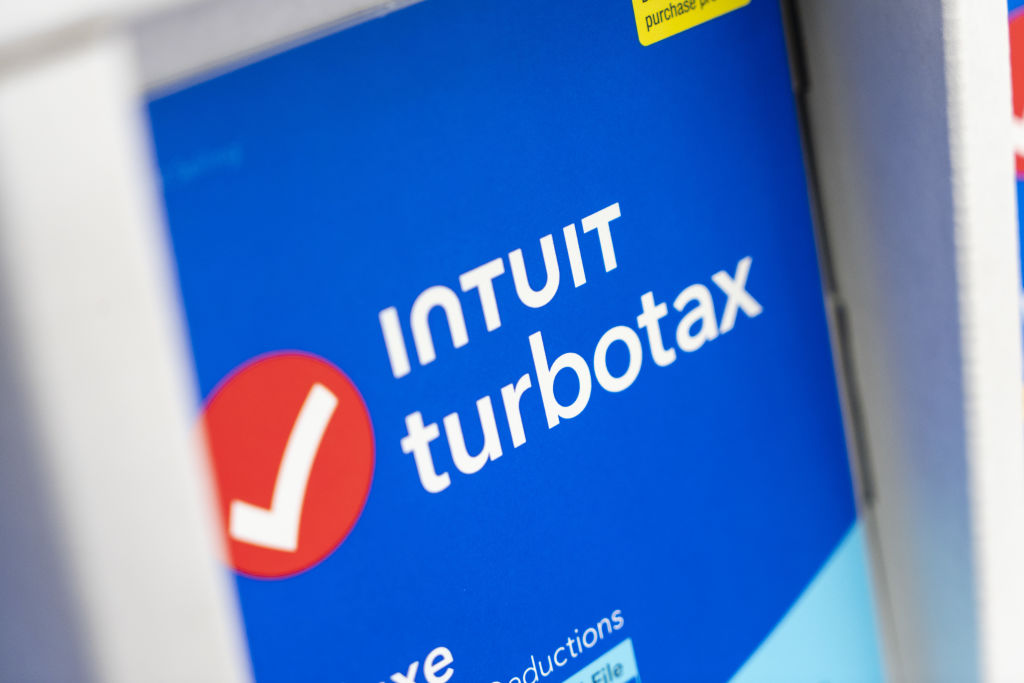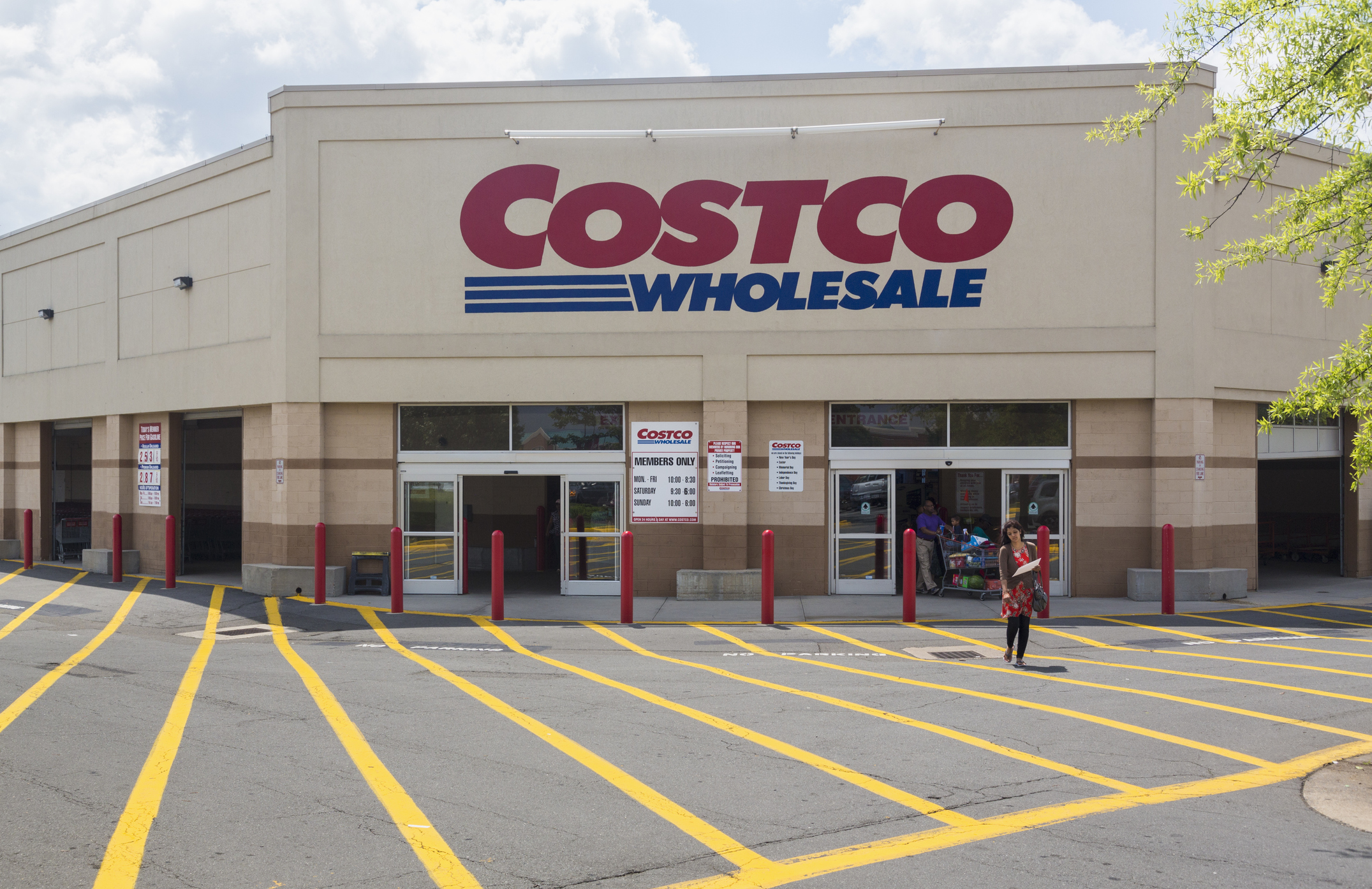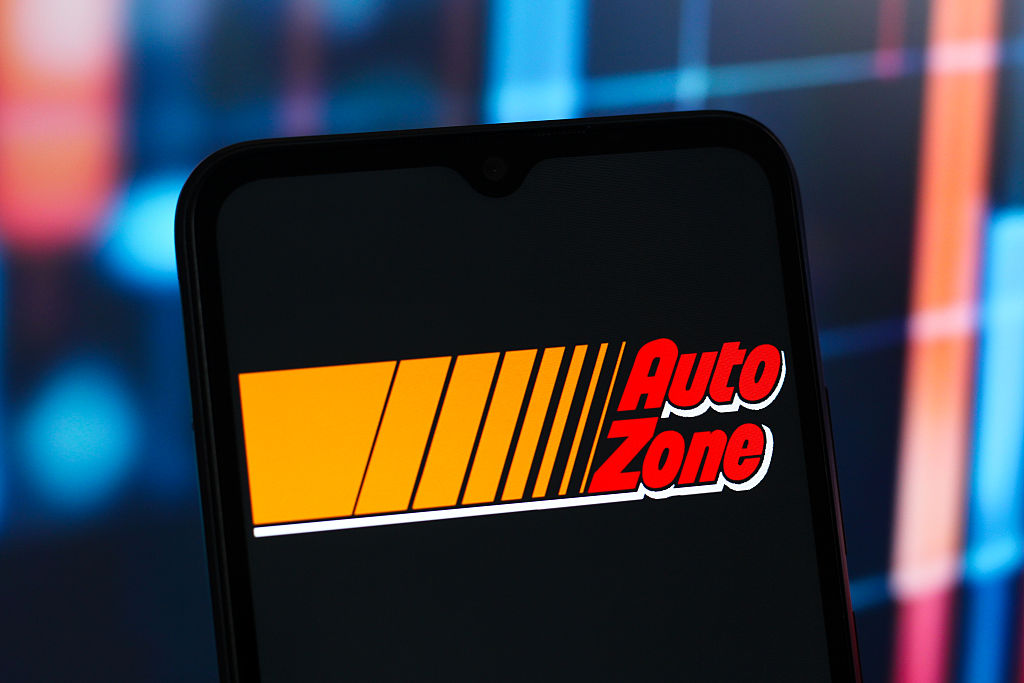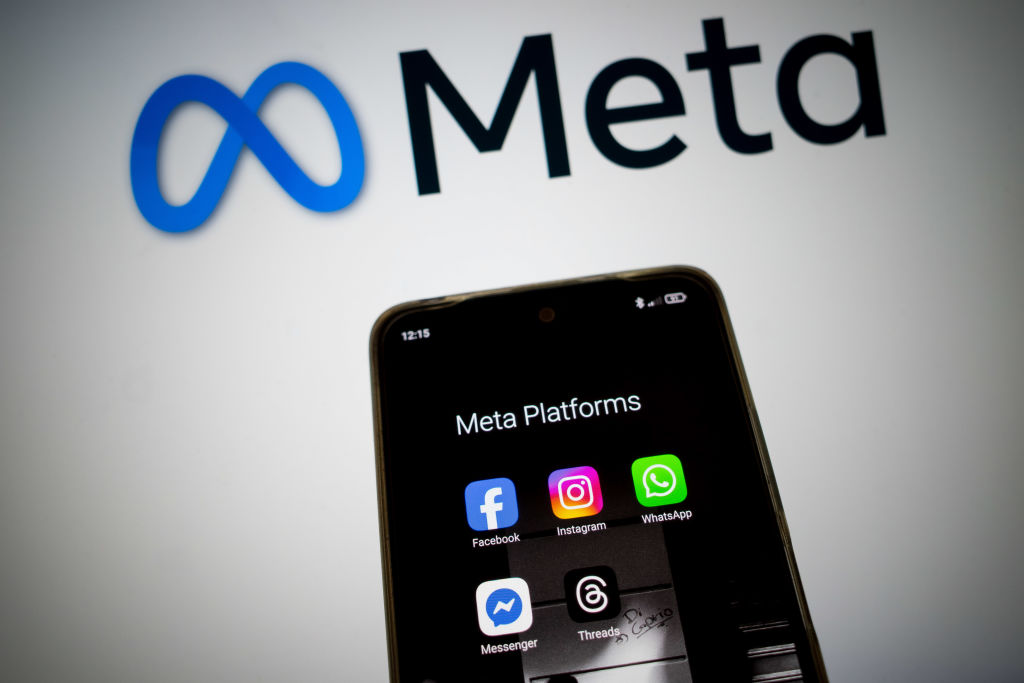Are These the Next Stocks to Split?
Netflix's recent stock split makes its shares more accessible to investors. Could these high-priced stocks be next?

Karee Venema
Profit and prosper with the best of Kiplinger's advice on investing, taxes, retirement, personal finance and much more. Delivered daily. Enter your email in the box and click Sign Me Up.
You are now subscribed
Your newsletter sign-up was successful
Want to add more newsletters?

Delivered daily
Kiplinger Today
Profit and prosper with the best of Kiplinger's advice on investing, taxes, retirement, personal finance and much more delivered daily. Smart money moves start here.

Sent five days a week
Kiplinger A Step Ahead
Get practical help to make better financial decisions in your everyday life, from spending to savings on top deals.

Delivered daily
Kiplinger Closing Bell
Get today's biggest financial and investing headlines delivered to your inbox every day the U.S. stock market is open.

Sent twice a week
Kiplinger Adviser Intel
Financial pros across the country share best practices and fresh tactics to preserve and grow your wealth.

Delivered weekly
Kiplinger Tax Tips
Trim your federal and state tax bills with practical tax-planning and tax-cutting strategies.

Sent twice a week
Kiplinger Retirement Tips
Your twice-a-week guide to planning and enjoying a financially secure and richly rewarding retirement

Sent bimonthly.
Kiplinger Adviser Angle
Insights for advisers, wealth managers and other financial professionals.

Sent twice a week
Kiplinger Investing Weekly
Your twice-a-week roundup of promising stocks, funds, companies and industries you should consider, ones you should avoid, and why.

Sent weekly for six weeks
Kiplinger Invest for Retirement
Your step-by-step six-part series on how to invest for retirement, from devising a successful strategy to exactly which investments to choose.

Netflix (NFLX) recently joined a high-profile list of companies that have executed a stock split over the past few years.
Netflix operates one of the most popular subscription-based streaming services and reported 17% year-over-year revenue growth in its most recently completed quarter.
The company underwent a 10-for-1 stock split in mid-November in order "to reset the market price of the company's common stock to a range that will be more accessible to employees who participate in the Company's stock option program," according to its press release.
From just $107.88 $24.99 for Kiplinger Personal Finance
Become a smarter, better informed investor. Subscribe from just $107.88 $24.99, plus get up to 4 Special Issues

Sign up for Kiplinger’s Free Newsletters
Profit and prosper with the best of expert advice on investing, taxes, retirement, personal finance and more - straight to your e-mail.
Profit and prosper with the best of expert advice - straight to your e-mail.
Indeed, NFLX's share price closed north of $1,154 on Friday, November 14. And for many retail investors or Netflix employees with limited funds to work with, that represents a high nominal per-share cost that could dissuade them from buying the communication services stock.
As a result, Netflix did what many companies have done in its situation and "split" its stock to make it more affordable.
Today, we'll talk about how stock splits (including NFLX's) work, look at some of the most noteworthy companies to split their stocks in recent history, and take a stab at which companies might split their stock next.
What is a stock split, and how does it work?
A stock split is one of Wall Street's simplest pieces of financial engineering. While there's a bit more that goes on in the back end, here's what you and I see:
- Before the split, I have one share of stock worth $Y. The share price is $Y/1.
- After the split, I have X shares of stock worth $Y. The share price is $Y/X.
Here's a hypothetical example in which Woodley Inc. announces a 4-for-1 stock split.
- Before the split, I have one share of Woodley Inc. stock worth $100. The share price is $100 ($100 / 1).
- After the split, I have four shares of Woodley Inc. stock worth $100. The share price is $25 ($100 / 4).
In other words, the total worth of your stock is exactly the same before and after the split. The two things that have changed are 1.) how many shares you own and 2.) how much each share is worth.
Netflix underwent a 10-for-1 stock split itself. Ahead of the split, shares traded at roughly $1,154 per share – which means immediately after the split, shares were priced closer to $111 per share.
Why do companies split their stock?
In short, companies split their stock because it makes shares cheaper, which in turn makes it more accessible to the average investor.
It's easier to think about this when you consider normal investor behavior.
The biggest contribution many people ever make to a brokerage or retirement account is a lump sum, whether that's savings, a rollover, what have you.
So, say you fund an IRA with $5,000 you saved up. You'll probably go out and buy stocks and funds right away, using up most of that $5,000. After that, however, let's say you can only contribute $50 per month.
I suppose you could wait months to afford a higher-priced stock. But you'd probably want to put that money to work right away, which means you'd probably look for a stock that costs $50 or less.
Companies know this. Netflix especially knows this. Hence, they split their stock.
Kiplinger contributor Charles Lewis Sizemore, in defining a stock split, brought up another perk, using Amazon's (AMZN) 20-for-1 split back in 2022 as an example:
"It's also easier to properly balance a portfolio. Let's imagine you want to make Amazon a 3% piece of your $100,000 portfolio. Well, with AMZN trading closer to $122, you'd be able to buy to about 25 shares to make that possible. But with Amazon trading at $2,447, you'd only be able to buy one share."
One interesting point: Stock splits are less common than they were a couple of decades ago. You can largely chalk that up to the advent of fractional shares, which allow people to buy fractions of stock for as little as $10, $5, sometimes even $1 per share.
It's a wildly democratizing feature that has allowed young and/or low-dollar investors to diversify their portfolios in ways they never could. But it has also reduced the necessity of splitting one's shares.
Noteworthy stock splits
2025 has seen a handful of stock splits. In addition to Netflix, we've also seen splits from the likes of Interactive Brokers (IBKR, 4-for-1), O'Reilly Automotive (ORLY, 15-for-1), Fastenal (FAST, 2-for-1) and independent bottler Coca-Cola Consolidated (COKE, 10-for-1).
But the biggest stock-split splashes have come over the past five years or so, from a number of Wall Street's biggest stocks:
Tesla (TSLA): Split 5-for-1 on August 28, 2020.
Apple (AAPL): Split 4-for-1 on August 31, 2020.
Nvidia (NVDA): Split 4-for-1 on July 19, 2021.
Amazon (AMZN): Split 20-for-1 on June 3, 2022.
Alphabet (GOOGL): Split 20-for-1 on July 15, 2022.
Tesla (TSLA): Split 3-for-1 on August 24, 2022.
Nvidia (NVDA): Split 10-for-1 on June 7, 2024.
Broadcom (AVGO): Split 10-for-1 on July 12, 2024.
Who could be next to split their stock?
Let's just say this up front: Any of the stocks we list here are guesses – nothing more. Educated guesses, but guesses nonetheless.
But we can think of three factors that would point toward a higher likelihood of a future stock split:
A high share price, of course. For the purposes of this exercise, we're looking at stocks currently trading at $500 or more.
A history of stock splits. If you're selling Girl Scout Cookies, you're starting with the houses that bought from you before.
Also, some companies are actually opposed to splitting their stock. Glenn Fogel, CEO of online travel site Booking Holdings (BKNG), whose stock trades above $4,500 per share, has said about investors concerned with nominal share price: "I don't think I want that kind of investor."
And Warren Buffett has famously kept his Berkshire Hathaway (BRK.A) A-class shares at ludicrous prices (currently around $755,000!) to attract long-term investors and discourage day trading in the stock.
Consumer-facing names. How much this really matters is anyone's guess – Fastenal and Coca-Cola Consolidated are hardly household names – but it's fair enough to assume that more recognizable brands enjoy a little more interest from retail investors.
With that said, here are a few companies that make the grade (share prices are as of November 17):
Intuit

Share price: $645.98
Intuit (INTU) is the name behind a quartet of products that are quite well-known (if not first-to-mind) to consumers and/or small business owners: TurboTax, Credit Karma, QuickBooks and Mailchimp.
It has split its stock thrice – in August 1995, September 1999 and June 2006. And at roughly $650 per share, it's among the highest stock prices in the S&P 500.
There are no immediate signs that Intuit will split its stock, but there's no reason to think it wouldn't again.
Costco Wholesale

Share price: $912.59
It's hard to find a more beloved consumer name than Costco Wholesale (COST), and the company has split its stock multiple times in the past.
And Wall Street clearly wants Costco to split its stock – even a couple of equity analysts have written that a stock split would be a catalyst for shares.
But on the few occasions management has been asked about the policy, they've been noticeably noncommittal. Still, Costco excels at keeping prices low. You'd think they'd apply the same mentality to their stock.
AutoZone

Share price: $3,855.26
Considering you could buy some older used cars for less than the price of one share of AutoZone (AZO), it absolutely fits the stock-price criterion.
And while its jingle isn't as catchy as rival O'Reilly, it's certainly a recognizable consumer brand. Technically, it has already broken the stock-split seal – twice, in fact.
But given that both of those were more than three decades ago (2-for-1 in January 1992 and then again in April 1994), and given that AZO has already let its price run into Taylor Swift VIP ticket territory, it's hard to say with any confidence that another split is in the offing.
Meta Platforms

Share price: $602.01
Facebook, Instagram and WhatsApp parent Meta Platforms (META) definitely checks off the consumer-facing box. And at more than $700 per share, its stock is far from affordable.
But it has never split its stock before. Why include it? It's the only Magnificent 7 stock, and the largest publicly traded company, to never have split its stock … so you could say it's due.
Splits make stocks cheaper, but not better values
One really quick but important distinction to make is that a stock split lowers a stock's nominal price, but it has absolutely no impact on valuation metrics like price-to-earnings (P/E) or price-to-sales (P/S).
That's because when you calculate these metrics, you're factoring the number of shares into both sides of the equation.
Example:
- Before the 4-for-1 split, Woodley Inc. stock trades at $100 per share. Woodley Inc. is expected to make $100 million in profits next year, and it has 10 million shares, so that's $10 per share in earnings ($100 million / 10 million). Its forward P/E is 10 ($100 / $10).
- After the 4-for-1 split, Woodley Inc. stock trades at $25 per share. Woodley Inc. is still expected to make $100 million in profits next year. But now it has 40 million shares, so that's $2.50 per share in earnings. Its forward P/E is still 10 ($25 / $2.50).
To reiterate: After a stock split, a stock might be cheaper, but it's no more or less a bargain than it was before.
Related content
Profit and prosper with the best of Kiplinger's advice on investing, taxes, retirement, personal finance and much more. Delivered daily. Enter your email in the box and click Sign Me Up.
Kyle Woodley is the Editor-in-Chief of WealthUp, a site dedicated to improving the personal finances and financial literacy of people of all ages. He also writes the weekly The Weekend Tea newsletter, which covers both news and analysis about spending, saving, investing, the economy and more.
Kyle was previously the Senior Investing Editor for Kiplinger.com, and the Managing Editor for InvestorPlace.com before that. His work has appeared in several outlets, including Yahoo! Finance, MSN Money, Barchart, The Globe & Mail and the Nasdaq. He also has appeared as a guest on Fox Business Network and Money Radio, among other shows and podcasts, and he has been quoted in several outlets, including MarketWatch, Vice and Univision. He is a proud graduate of The Ohio State University, where he earned a BA in journalism.
You can check out his thoughts on the markets (and more) at @KyleWoodley.
- Karee VenemaSenior Investing Editor, Kiplinger.com
-
 Quiz: Do You Know How to Avoid the "Medigap Trap?"
Quiz: Do You Know How to Avoid the "Medigap Trap?"Quiz Test your basic knowledge of the "Medigap Trap" in our quick quiz.
-
 5 Top Tax-Efficient Mutual Funds for Smarter Investing
5 Top Tax-Efficient Mutual Funds for Smarter InvestingMutual funds are many things, but "tax-friendly" usually isn't one of them. These are the exceptions.
-
 AI Sparks Existential Crisis for Software Stocks
AI Sparks Existential Crisis for Software StocksThe Kiplinger Letter Fears that SaaS subscription software could be rendered obsolete by artificial intelligence make investors jittery.
-
 5 Top Tax-Efficient Mutual Funds for Smarter Investing
5 Top Tax-Efficient Mutual Funds for Smarter InvestingMutual funds are many things, but "tax-friendly" usually isn't one of them. These are the exceptions.
-
 Why Invest In Mutual Funds When ETFs Exist?
Why Invest In Mutual Funds When ETFs Exist?Exchange-traded funds are cheaper, more tax-efficient and more flexible. But don't put mutual funds out to pasture quite yet.
-
 Social Security Break-Even Math Is Helpful, But Don't Let It Dictate When You'll File
Social Security Break-Even Math Is Helpful, But Don't Let It Dictate When You'll FileYour Social Security break-even age tells you how long you'd need to live for delaying to pay off, but shouldn't be the sole basis for deciding when to claim.
-
 I'm an Opportunity Zone Pro: This Is How to Deliver Roth-Like Tax-Free Growth (Without Contribution Limits)
I'm an Opportunity Zone Pro: This Is How to Deliver Roth-Like Tax-Free Growth (Without Contribution Limits)Investors who combine Roth IRAs, the gold standard of tax-free savings, with qualified opportunity funds could enjoy decades of tax-free growth.
-
 One of the Most Powerful Wealth-Building Moves a Woman Can Make: A Midcareer Pivot
One of the Most Powerful Wealth-Building Moves a Woman Can Make: A Midcareer PivotIf it feels like you can't sustain what you're doing for the next 20 years, it's time for an honest look at what's draining you and what energizes you.
-
 Stocks Make More Big Up and Down Moves: Stock Market Today
Stocks Make More Big Up and Down Moves: Stock Market TodayThe impact of revolutionary technology has replaced world-changing trade policy as the major variable for markets, with mixed results for sectors and stocks.
-
 I'm a Wealth Adviser Obsessed With Mahjong: Here Are 8 Ways It Can Teach Us How to Manage Our Money
I'm a Wealth Adviser Obsessed With Mahjong: Here Are 8 Ways It Can Teach Us How to Manage Our MoneyThis increasingly popular Chinese game can teach us not only how to help manage our money but also how important it is to connect with other people.
-
 Looking for a Financial Book That Won't Put Your Young Adult to Sleep? This One Makes 'Cents'
Looking for a Financial Book That Won't Put Your Young Adult to Sleep? This One Makes 'Cents'"Wealth Your Way" by Cosmo DeStefano offers a highly accessible guide for young adults and their parents on building wealth through simple, consistent habits.
